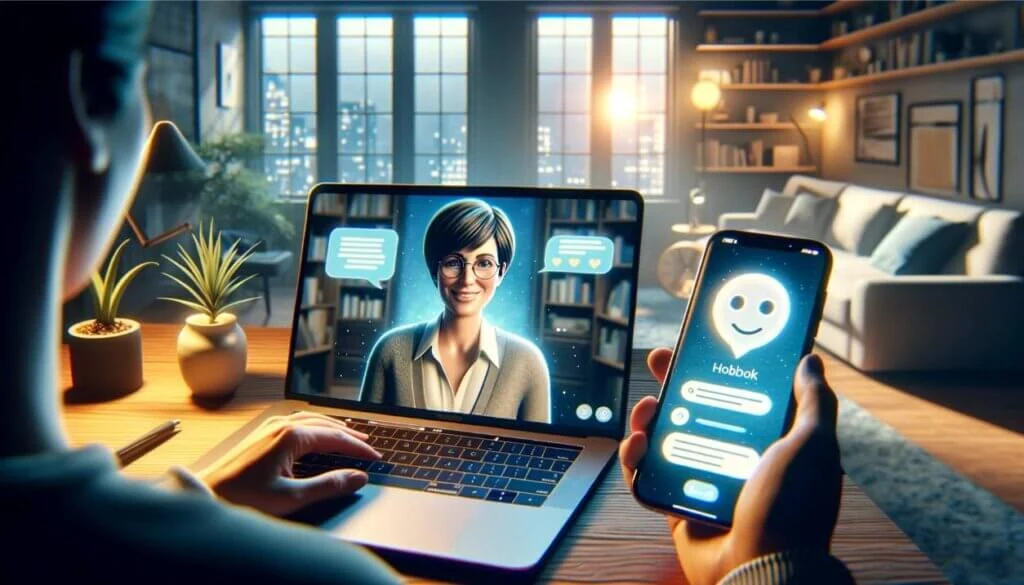Introduction: A New Age of Listening Machines
Artificial Intelligence (AI) is reshaping modern healthcare, and one of its most transformative frontiers is AI in mental health. With the rise of AI-driven therapy apps like Woebot and Wysa, a critical question arises: Can AI truly replace human therapists, or is emotional intelligence still uniquely human?
The Rise of AI Therapists: Real-World Examples
Several AI in mental health tools have emerged with global impact:
- Woebot Health, developed by psychologists at Stanford University, uses cognitive-behavioral therapy (CBT) principles. A 2017 study published in JMIR Mental Health found that Woebot significantly reduced symptoms of depression and anxiety in college students over just two weeks (Fitzpatrick et al., 2017).
- Wysa, an AI-enabled mental health app endorsed by the UK’s National Health Service (NHS), has more than 6.5 million users across 95 countries. It combines AI support with access to human therapists and has been used by the World Health Organization (WHO) for community mental health interventions during COVID-19.
- Replika, an emotionally intelligent chatbot, gained attention when users began forming deep emotional bonds with their “AI friends.” In some cases, users reported a decrease in loneliness, while others voiced concerns over developing psychological dependence on a non-human companion (The Washington Post, 2023).
These tools demonstrate how AI in mental health services is becoming more accessible and scalable.
The Appeal: Why Millions Are Turning to AI for Support
Several factors explain the surge in usage of AI in mental health therapy:
- Accessibility: Available 24/7, regardless of location.
- Affordability: Free or low-cost compared to traditional therapy.
- Anonymity: Removes the stigma of seeking help.
- Crisis Support: Offers instant tools for anxiety and emotional regulation.
A 2021 report by The Lancet Psychiatry revealed that nearly one in three people worldwide lack access to mental health services. AI is emerging as a scalable solution to bridge this treatment gap.
Case Study: AI Therapy During COVID-19
During the COVID-19 pandemic, when mental health issues surged, AI tools became lifelines. A study conducted by the University of Oxford (2021) reported that Wysa saw a 77% increase in global usage, with anxiety and stress-related queries peaking during lockdown periods.
Users from low-resource settings reported that the app helped them manage isolation and depressive symptoms when no therapist was available.

Can AI in Mental Health Truly Replace Human Empathy?
The core criticism remains: AI can simulate empathy—but cannot feel it.
- Machines process patterns, not emotions. While helpful in managing mood, they may:
- Miss trauma cues
- Misinterpret cultural context
- Offer generic, impersonal responses
As Noted by Dr. Sherry Turkle, psychologist and MIT professor:
“Empathy requires vulnerability and shared experience—machines cannot do that.”
(Reclaiming Conversation, Penguin Press, 2015)
Moreover, the FDA has yet to formally approve any AI mental health tool as a licensed therapy provider, highlighting the gap between innovation and regulation.
Not a Replacement—But a Supplement
Leading mental health organizations, including the American Psychological Association (APA), emphasize that AI can complement but not replace human therapists. For example:
- Wysa partners with licensed clinicians who monitor user progress.
- Woebot makes it clear it is not a crisis tool and recommends users reach out to emergency services when needed.
AI can assist with:
- Mood tracking and journaling
- Daily check-ins and goal setting
- Behavioral nudges using CBT or mindfulness
But severe cases—like PTSD, suicidal ideation, or trauma therapy—require a human touch.
Privacy, Ethics, and Regulation
With sensitive mental health data involved, the ethics of AI therapy are under scrutiny:
- A 2022 Mozilla Foundation report criticized mental health apps for poor data protection, stating that 28 out of 32 apps they reviewed shared user data with third parties.
- Many apps operate without transparent consent models, risking exploitation or data breaches.
- Algorithmic bias and lack of diversity in training data may lead to misinterpretation or exclusion of marginalized groups.
Countries like the UK, Canada, and the EU are now working on AI ethics frameworks to regulate digital therapy tools.
Conclusion: Hopeful, But Human
AI presents a groundbreaking opportunity to extend mental health care to billions who lack access. But as powerful as these tools may be, they are still limited by what they cannot replicate—human intuition, empathy, cultural understanding, and trust.
In the words of Dr. Thomas Insel, former Director of the National Institute of Mental Health (NIMH):
“The therapeutic alliance—a relationship built on trust—is what heals. That’s not something AI can replicate—yet.”
For now, the most promising path forward is a hybrid model: AI for scale and efficiency, humans for depth and compassion.
Author’s Note
This article was written with the encouragement and inspiration of my professor, Professor Dr. Sobia Masood, Chairperson of Psychology Department, Rawalpindi Women University, whose guidance continues to shape my academic journey.
References
- Fitzpatrick, K. K., Darcy, A., & Vierhile, M. (2017). Delivering Cognitive Behavior Therapy to Young Adults With Symptoms of Depression and Anxiety Using a Fully Automated Conversational Agent (Woebot): A Randomized Controlled Trial. JMIR Mental Health, 4(2), e19.
- Mozilla Foundation. (2022). Privacy Not Included: Mental Health Apps.
- University of Oxford. (2021). AI in Global Mental Health During COVID-19.
- The Washington Post. (2023). People Are Falling in Love with Their AI Companions—Is That a Problem?
- Turkle, S. (2015). Reclaiming Conversation: The Power of Talk in a Digital Age. Penguin Press.

